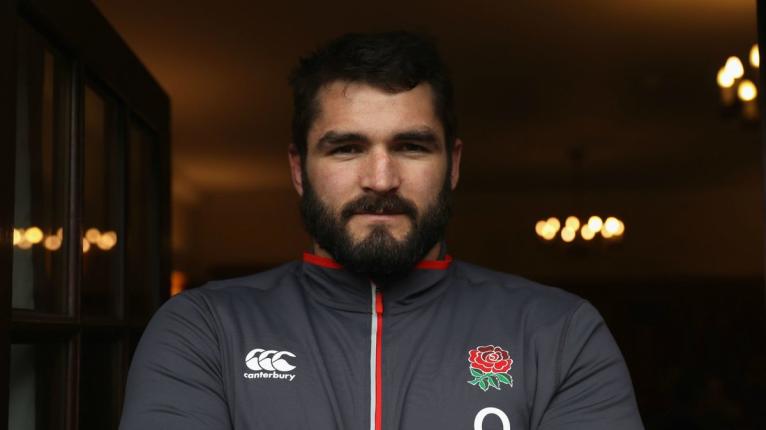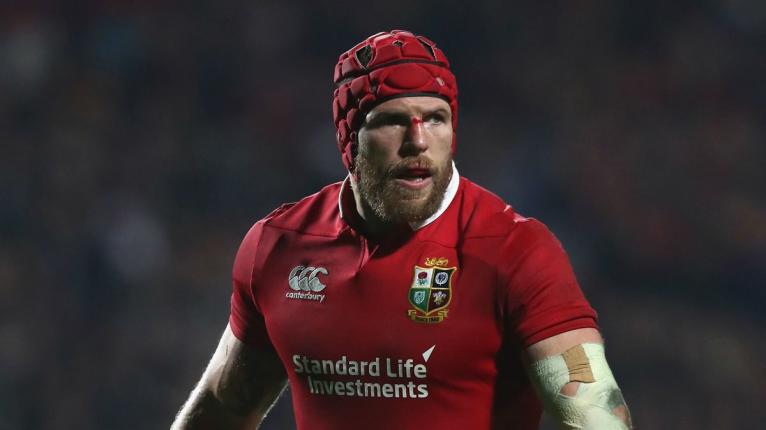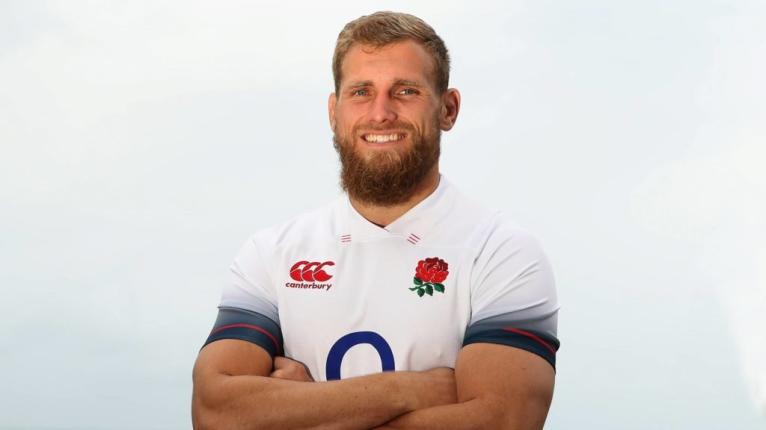A 13 man shortlist of England's Number Eight options and their 'pros' and 'cons'

In the world of Eddie Jones, it never rains but it pours, it seems.
Having already lost Sam Simmonds to a long-term injury and having an expected suspension hanging over the head of Nathan Hughes, England saw their starting number eight, and arguably most influential player, Billy Vunipola break his arm for the third time in a year at the weekend.
With Vunipola and Hughes having played the bulk of minutes for England at number eight over the last three seasons, Jones is now in a predicament over who to turn to for the upcoming autumn internationals.
To make matters worse, the versatile and experienced Chris Robshaw has also gone down with injury and though he was unlikely to be the man tasked with filling the eight jersey, the loss of experience will have a knock-on effect on the entire back row unit.
We have rounded up all the possible options Jones could look at to fill the berth when he announces the squad tomorrow, with pros and cons on each of the candidates.
Continue reading below…
Watch: Warren Gatland speaks about his selections for the autumn internationals, including the uncapped Jonah Holmes.
Don Armand, Exeter Chiefs
The people’s champion, it seems. Fans have been clamouring for Armand’s inclusion since he became eligible for England, but as of yet, Jones has been reluctant to use him in all but the most serious of injury crises or shortages of available players.
Could losing those four back rowers be enough to force Jones’ hand?
Pros: Brings the physicality Jones likes in back rowers, a good ball-handler and has the engine to play at a high level for 80 minutes.
Cons: Little international experience, plays in unfavoured Exeter system and doesn’t carry enough in the tight, apparently.

Zach Mercer, Bath
The coming force, Mercer has been making people sit up and take notice of his abilities in the Gallagher Premiership and Heineken Champions Cup for over a year now. He was involved with the England set-up last season as an apprentice and now, with another year of experience under his belt, the calls are getting louder for Mercer to be involved.
Pros: Brings alternative ways to win the battle at the gain-line, more mobile than England’s current back row options and is an adept operator at the breakdown, too.
Cons: Little international experience and deemed too lightweight for the grunt work by some.
https://www.youtube.com/watch?v=rsXUAL7Wvts
James Haskell, Northampton Saints
Haskell is by far the most experienced option at Jones’ potential disposal over the next month of international rugby. He has fallen out of favour with England since multiple injuries last season, but it shouldn’t be forgotten that he played a key role in England’s early success under Jones.
Pros: Wealth of international experience, versatility to cover across the back row and packs a punch in the tight, as both a carrier and a tackler.
Cons: Hasn’t had the hottest of starts to his time at Northampton, not the most adept ball-handler and has had the seven jersey, Jones’ preferred position for him, snaffled by Tom Curry.

Ben Morgan, Gloucester
Despite not featuring for England under Jones, Morgan has picked a good time to hit form and put his injury woes behind him. He has been impressive in recent weeks for Gloucester and they are a club that Jones has frequently been watching in the 2018/19 season.
Pros: Closest to a like-for-like replacement for Vunipola, in a good vein of form and another who can pick up the tough yards close to the ruck.
Cons: Moderate international experience but hasn’t been involved in the set-up under Jones, Gloucester have not proven a popular club for the Australian and he is, you would suspect, either the starting number eight or not involved at all.
Brad Shields, Wasps
Most people are expecting Shields to be included tomorrow, having previously been involved in South Africa earlier this year, but could he be included as a potential number eight? He has been talked about as an option for England on the flanks, but he spent plenty of time at eight during his final season with the Hurricanes.
Pros: Solid ball-handler, offers ability at the breakdown and has a good understanding of upcoming opponents, not least so the All Blacks.
Cons: Not the explosive carrier that some of the other options are, little international experience and not the most powerful around the fringes.

Matt Kvesic, Exeter Chiefs
The former Gloucester openside has been revelling in his role at the base of the scrum this season with Exeter and it’s something which has put his carrying ability front and centre. He now looks one of the more well-rounded back rowers in the Premiership.
Pros: Breakdown ability, versatility to cover multiple positions and an underrated carrying game in the tight.
Cons: Not a favoured player of Jones, little international experience and may not be considered to be a ‘natural eight’.
Mark Wilson, Newcastle Falcons
Another flanker impressing in the eight jersey for his club, Wilson has the upper hand on Kvesic in that he has been regularly involved in England training camps over the last year. He is another player to have started the 2018/19 season in good form and there are similar calls for Wilson to be picked that there are for Armand and Mercer, especially since Robshaw has also now been sidelined.
Pros: Versatility across the back row, has a skill set that is admired by Jones and brings an energy and work rate defensively that England could be missing with Robshaw out.
Cons: Relatively inexperienced as a number eight, used to the England environment but not overflowing with international experience and not the powerhouse carrier that Jones has favoured in the past three seasons.
Dave Ewers, Exeter Chiefs
Not a regular starting eight for Exeter but someone who potentially ticks a number of the boxes Jones is particularly keen on at the position. Touch wood, he seems to have shaken off the worst of his recent injury issues and has been quietly finding form in the south-west.
Pros: Very powerful around the fringes, makes dominant gain-line tackles in defence and possesses the natural size that Jones craves.
Cons: Little international experience and not frequently playing number eight in the Premiership.
James Chisholm, Harlequins
A former Junior World Player of the Year and England U20 captain, Chisholm’s opportunities at the senior level have yet to manifest. He has been a consistent performer in an inconsistent Quins side over the last couple of years and has naturally filled out and become more physical since his U20s days.
Pros: Wins at the gain-line in alternative ways, impressive mobility around the park and endeavours to keep phases alive whenever possible.
Cons: Little international experience, doesn’t tick the size box for Jones and has, internationally, lived in the shadow of Robshaw and Jack Clifford at Quins.
Teimana Harrison, Northampton Saints
Another ‘undersized’ option to go with Mercer and Chisholm. Harrison was initially favoured by Jones and England after the 2015 Rugby World Cup, but he was unable to cement himself into the side and his opportunities have been sparse since he received the shepherd’s crook in the first half of the Test against Australia in Sydney in 2016.
Pros: Wins at the gain-line in alternative ways, offers impact at the breakdown and brings an edge to his game.
Cons: Fallen out of favour with England, little international experience and seen by some as a flanker, rather than a number eight.
Jackson Wray, Saracens
If there’s one thing we know about Jones, it’s that he likes a Saracens player. That said, Wray and Alex Goode have been the two noteworthy absentees from England during the Australian’s tenure, despite impressing consistently at club level. Is Wray the reliable option Jones needs to get through this tricky patch?
Pros: Brings enviable work rate and stamina, has a good all-round game and enjoys chemistry with much of England’s current pack.
Cons: Little international experience, not a powerhouse carrier of the ball and Jones has shown no indications to this point that Wray is on his radar.
Jono Ross, Sale Sharks
Ross qualifies for England through his grandmother and after an impressive 2017/18 season with Sale, his name has been mentioned a few times in regard to international selection. He has experience of playing eight at club level and combines well with England’s current openside, Tom Curry.
Pros: Impressive work rate on both sides of the ball, impact at the contact area and not afraid of going to work in the tight.
Cons: Little international experience, not a powerhouse carrier and lacks the dynamism to win at the gain-line in alternative ways.
Ben Earl, Saracens
Earl was an unused tourist for England this summer in South Africa, despite still being eligible to play at the World Rugby U20 Championship. He is more likely an option for England to look at after the Rugby World Cup, but with so many back rowers going down, Jones could turn to him earlier than expected.
Pros: Extremely mobile, wins at the gain-line in alternative ways and brings the work rate and energy that is expected of Saracens players.
Cons: Little international experience, possibly not seen as a ‘natural eight’ and questions over whether, at this point in his career, he could make the hard yards around the contact area in international rugby.
In other news: Kurtley Beale talks about the effect of wearing the indigenous jersey with England’s upcoming opponents, Australia.























































